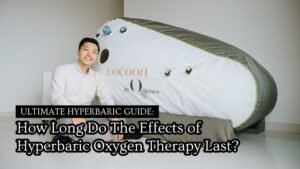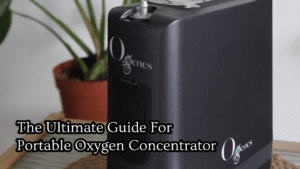This guide is about Meta-Analysis on the Efficacy and Safety of Hyperbaric Oxygen as Adjunctive Therapy for Vascular Dementia. Vascular dementia is a condition caused by reduced blood flow to the brain, often due to strokes or other vascular issues. It can lead to cognitive decline and memory problems, significantly impacting the quality of life of affected individuals. Hyperbaric oxygen therapy (HBOT) has gained attention as an adjunctive therapy for vascular dementia, with the potential to improve cognitive function. This article explores a meta-analysis on the efficacy and safety of HBOT in the context of vascular dementia, providing insights into its role as a supplementary treatment.
Background: Vascular dementia (VD) is a common type of disease in the elderly. Numerous clinical trials have suggested that hyperbaric oxygen is an effective and safe complementary therapy for aging-related disorders. However, there is no reliable systematic evidence regarding hyperbaric oxygen therapy (HBOT) for the treatment of VD. Therefore, we performed a meta-analysis to evaluate the clinical efficacy and safety of HBOT in treating VD.
Methods: We methodically retrieved the clinical studies from eight databases (PubMed, Cochrane Library, Embase, Web of Science, Sino-Med, China National Knowledge Infrastructure (CNKI), China Science and Technology Journal Database (VIP), and WanFang) from their inception to November 2018. RevMan 5.3.5 was used for quality assessment and data analysis. Stata 15.1 was employed for publication bias detection and sensitivity analysis.
Results: Twenty-five randomized clinical trials (RCTs) involving 1,954 patients met our inclusion criteria. These articles researched the HBOT + oxiracetam + conventional therapy (CT) vs. oxiracetam + CT (n = 13), HBOT + butylphthalide +CT vs. butylphthalide + CT (n = 5), HBOT + donepezil + CT vs. donepezil + CT (n = 4), HBOT + nicergoline + CT vs. nicergoline + CT (n = 2) and HBOT + CT vs. CT (n = 1). The results indicated that additional HBOT strikingly improved the Mini-Mental State Examination (MMSE) (MD = 4.00; 95% CI = 3.28-4.73; P < 0.00001), activities of daily living (ADL) (MD = -5.91; 95% CI = -6.45, -5.36; P < 0.00001) and ADL by Barthel index (BADL) (MD = 13.86; 95% CI = 5.63-22.10; P = 0.001) and increased the total efficacy rate (TEF) (OR = 4.84, 95% CI = 3.19-7.33, P < 0.00001). The adverse events rates were not statistically significant between the HBOT and CT groups (OR = 0.85, 95% CI = 0.26-2.78, P = 0.79).
FAQs for Hyperbaric Oxygen as Adjunctive Therapy
Q1: What is vascular dementia, and why is it a significant medical concern?
A1: Vascular dementia is a cognitive disorder caused by impaired blood flow to the brain, often due to vascular issues or strokes. It is a significant concern as it can lead to memory loss, and cognitive decline, and impact daily life.
Q2: What is hyperbaric oxygen therapy (HBOT), and how does it work?
A2: HBOT is a medical treatment that involves breathing pure oxygen in a pressurized chamber. It increases oxygen levels in the body, promoting healing and potentially improving cognitive function.
Q3: How does HBOT serve as adjunctive therapy for vascular dementia, and what is a meta-analysis in this context?
A3: HBOT is explored as an adjunctive therapy alongside standard treatments for vascular dementia. A meta-analysis is a statistical technique that combines and analyzes the results of multiple studies to draw more robust conclusions about the efficacy and safety of HBOT for vascular dementia.
Q4: What are the potential benefits and risks of using HBOT in the treatment of vascular dementia?
A4: The potential benefits include improved cognitive function and enhanced quality of life. Risks may include barotrauma, oxygen toxicity, and the need for specialized facilities. The balance between benefits and risks is a key focus of research.
Conclusion
In view of the effectiveness and safety of HBOT, the present meta-analysis suggested that HBOT can be recommended as an effective and safe complementary therapy for the treatment of vascular dementia.






